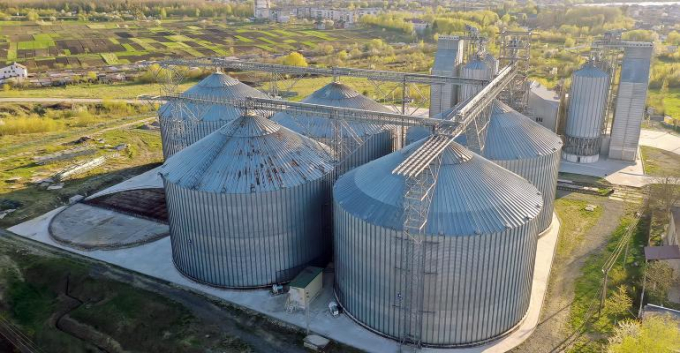November 27, 2025 | 03:37 GMT +7
November 27, 2025 | 03:37 GMT +7
Hotline: 0913.378.918
November 27, 2025 | 03:37 GMT +7
Hotline: 0913.378.918

Why a rally is not necessarily good news for grain elevators. Photo: farmprogress
If a farmer sells grain at $4 per bu. to the elevator and the price goes to $5, the farmer can feel like they’ve lost out on a dollar and feel like the elevator gained a dollar.
The key is to understand both futures and basis to uncover: How does an elevator make money? And how do they not make money? In this case we’ll focus on the elevator being a buyer of grain and then reselling to a processor or onto a train or barge to be shipped out to end users.
With futures being the main tool for everyone in the system to use to manage and transfer risk, your elevator likely has a charter that prohibits them from having price risk in the futures market. As soon as they buy corn from you and you’ve locked in the futures price and basis, they’ve assumed the ownership and risk. At that moment, their risk is that futures continue to go down, and that basis continues to get worse.
When you sell an elevator corn at $4.20, for example, their risk is that corn goes lower. They’re going to sell futures as well and transfer the price risk away from themselves. Then, whether futures go up or down, they aren’t carrying that risk.
Their risk is related to whether or not basis changes. The main way an elevator makes a profit is around basis fluctuations. If they already have a destination where someone is willing to pay them 10 cents over for corn and it costs 20 cents to ship it to that buyer, and the elevator can buy corn from you for 20 cents under, then they’ve been able to make 10 cents – regardless of whether the futures price went up or down.
Elevators sometimes buy corn at a low basis, anticipating that over time, basis will improve. The basis, as well as transaction, handling and dryer fees, are the main ways that the elevator makes money – rather than through changes in the futures price.
In fact, if you sell corn to an elevator and the price of grain rallies, they have to pay interest on the money to fund their short futures position. A rally actually costs them money. So, they’re not excited about corn rallying a dollar or two after you sell it to them, either.
(farmprogress)

(VAN) A new study reveals how the simultaneous effects of ocean acidification, salinity and loss of oxygen are making the world more fragile.

(VAN) Hopes are growing that the creation of the first 3D turkey gut model could be a turning point in the battle against the virulent blackhead disease.

(VAN) Tyson, America’s biggest meat supplier, plans to shutter one of its largest beef processing plants as the industry continues to struggle with low cattle supplies and political pressure from Washington.

(VAN) New FAO study shows how digital solutions are empowering farmers and fishers to prevent losses and build resilient agrifood systems.

(VAN) Brazil's COP30 presidency pushed through a compromise climate deal on Saturday that would boost finance for poor nations coping with global warming but that omitted any mention of the fossil fuels driving it.

(VAN) Poultry farmers in the UK have been warned that they could face one of the worst winters yet for bird flu.

(VAN) Prices of main-crop paddy have risen sharply, with jasmine rice hitting 16,100 baht per tonne — the highest level in years.